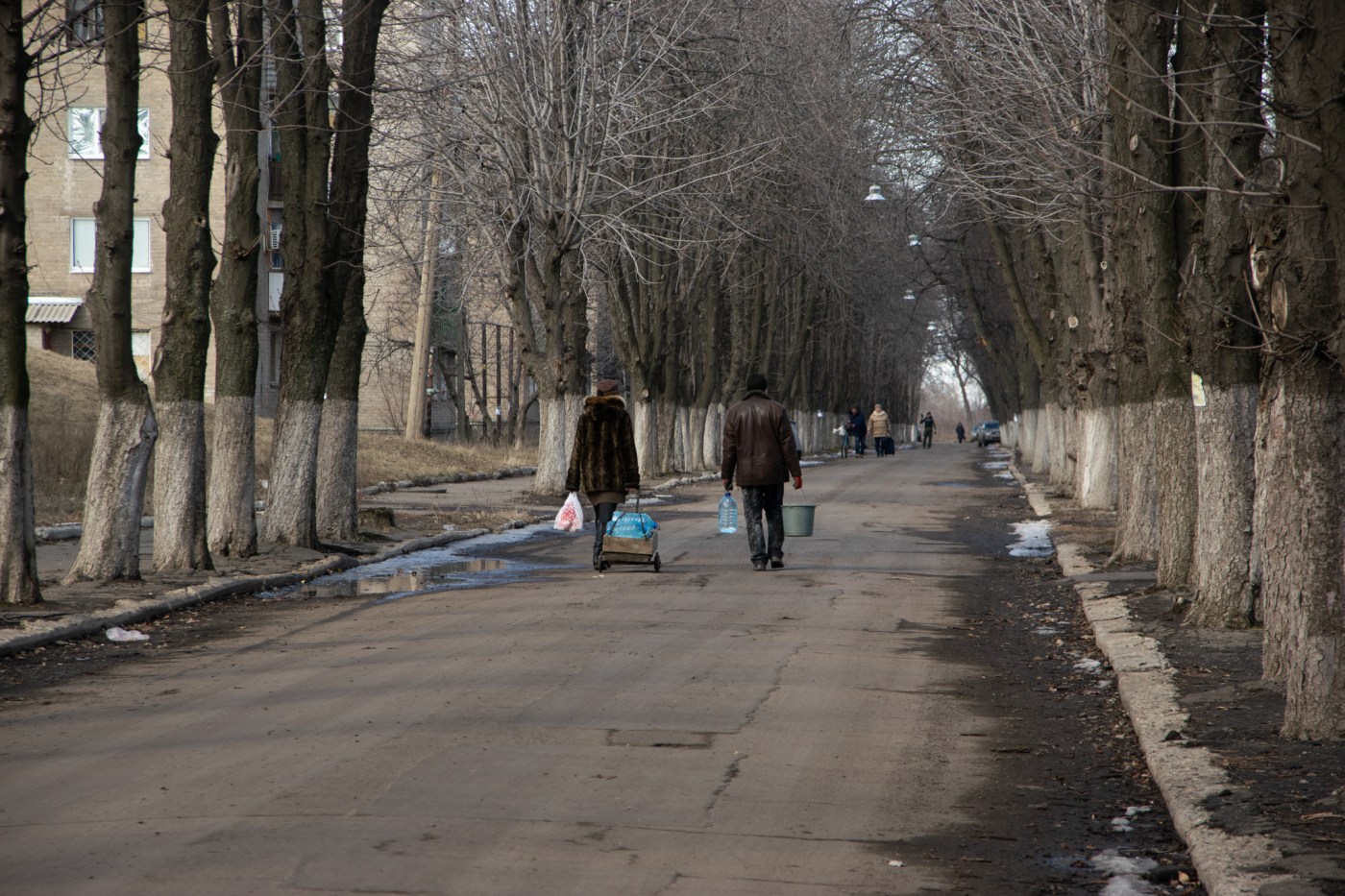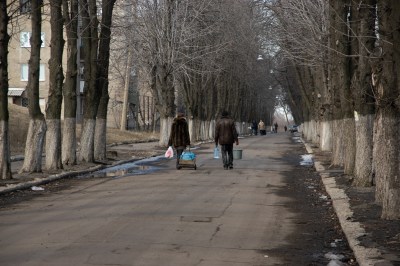CHASIV YAR, Ukraine—Sergei Lyshakov did not flinch at the lone artillery shell whistling through the air. The round landed some distance away from his apartment block, the explosion muffled by the much louder snaps from the constant outgoing artillery fire. Why did the 60-year-old retired electrician remain so calm?
“If it whistles strongly, then you know where it is,” he explained, alluding to the oft-repeated battlefield wisdom that victims of shelling do not hear the incoming screech. “If it’s far away, it means they’re shooting from there to there, not at us but past us.”
(Sergei Lyshakov. Credit: Bennett Murray.)
As Russian forces attempt to complete their encirclement of the eastern Ukrainian town of Bakhmut, Chasiv Yar sits at the tip of the enemy’s southern pincer. If Bakhmut falls, locals here believe their town will become the next focus of Russia’s push into the Donbas.
The initial Russian advance began last spring. When Bakhmut first came under attack in May, Russian forces were moving all across the Donbas frontline to the north, south, and east as they attempted to force Ukraine’s remaining troops in the region into a caldron. Even as Russia’s initial strategy collapsed over the summer, Russian President Vladimir Putin’s forces have remained fixated on Bakhmut.
Seizing the city, a local transportation hub, would provide Russia some options as it ponders its next move in the region. Yevgeny Prigozhin, the Putin ally whose Wagner Group has been particularly active in the battle, also seems to be attempting to score points at home in his ongoing feud with the Defense Ministry. For him, the best rebuke to his critics in Moscow would be a victory here.
Ukraine, for its part, has poured resources into the fight as well. “We understand that after Bakhmut they could go further, “ Ukrainian President Volodymyr Zelensky told CNN this week. “They could go to Kramatorsk, they could go to Sloviansk, it would be open road for the Russians after Bakhmut to other towns in Ukraine, in the Donetsk direction.”
CNN also reported this week that a NATO official said Russia has lost five soldiers for every Ukrainian killed. If true, the ugly math could arguably justify Bakhmut’s continued defense even if the city ultimately falls. But the defenders have paid tremendous costs too: While official estimates of Ukrainian casualties are a closely guarded secret and the city itself has been closed to journalists since last week, the situation appears dire.
That’s certainly becoming the case here in Chasiv Yar. Russian soldiers have taken positions just 1 mile south of the city’s southern boundary—the westernmost extent of its push into the heart of Ukrainian-controlled Donbas—as they try to maintain fire control on the only remaining paved road into Bakhmut.
With the government strongly urging citizens to evacuate, this town’s pre-war population of 12,000 is almost entirely gone. Civilians are mostly absent in the city’s streets, with only a few mingling. There are no longer any utilities, though the Ukrainian military trucks in water to frustrated locals. Only a small shop remains open, selling a few essential goods, and humanitarian aid from volunteer groups serves as the primary lifeline for residents who have defied official guidance to flee.
Why stay? Many of the elderly and their caretakers feel they have no choice. Others fear becoming destitute if they try to resettle elsewhere. A few are also probably among the small minority of those in Ukrainian-controlled Donbas who quietly want a Russian victory.
Lyshakov expressed apathy toward the outcome of the war. When asked whether Ukraine would prevail in the area, he said it made no difference to him. He would accept whichever victor ended up in control. “I am already tired of all the boom, boom, boom,” he added, gesturing with his hands.
Yulia, a 30-year-old woman who stopped by the building to retrieve a pair of eyeglasses that her grandmother had lent Lyshakov, didn’t share his attitude. She had evacuated to Konstantinovka, a town just 6 miles away, but she returns home once a week for short visits to check on her mother and grandmother who stayed behind. Her old apartment, she added, was hit by a shell.
(Yulia. Credit: Bennett Murray.)
“I don’t know for sure how it will end, but we hope that it will get better so our boys will succeed,” said Yulia, adding that her boyfriend serves in the Ukrainian military. “We do not need Russians here, although I have a lot of family in Russia.”
Across the courtyard from Lyshakov’s place, a 49-year-old construction worker named Ruslan smoked a cigarette next to his home as the artillery duel continued not far away. While he said “only fools don’t feel fear,” he has no plans to leave.
Chasiv Yar will not fall to the Russians, he said confidently, though he is less sure about Bakhmut: “To be honest, I’m fed up with this war.”






Please note that we at The Dispatch hold ourselves, our work, and our commenters to a higher standard than other places on the internet. We welcome comments that foster genuine debate or discussion—including comments critical of us or our work—but responses that include ad hominem attacks on fellow Dispatch members or are intended to stoke fear and anger may be moderated.
With your membership, you only have the ability to comment on The Morning Dispatch articles. Consider upgrading to join the conversation everywhere.